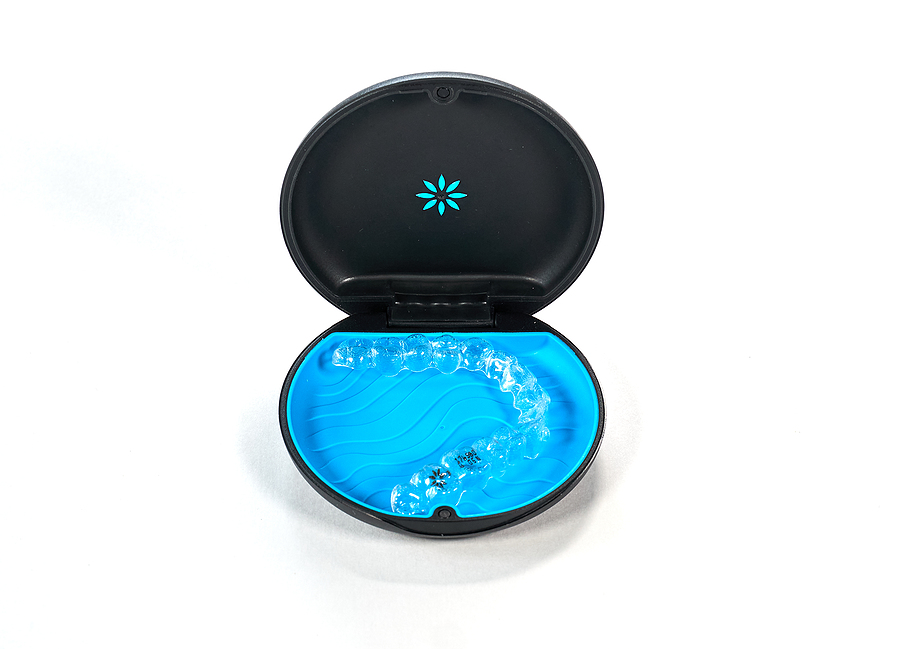![This is a thumbnail image of blog What Are the Causes of Gum Disease? This is a thumbnail image of blog What Are the Causes of Gum Disease?]()
What Are the Causes of Gum Disease?
Jul 21, 2023![This is a thumbnail image of blog Best Practices For A Healthy Smile This is a thumbnail image of blog Best Practices For A Healthy Smile]()
Best Practices For A Healthy Smile
Nov 29, 2022![This is a thumbnail image of blog A Comprehensive Guide to Invisalign in Redmond, OR: Straightening Your Smile with Confidence This is a thumbnail image of blog A Comprehensive Guide to Invisalign in Redmond, OR: Straightening Your Smile with Confidence]()
A Comprehensive Guide to Invisalign in Redmond, OR: Straightening Your Smile with Confidence
Oct 16, 2024![tooth extraction in Redmond, OR tooth extraction in Redmond, OR]()
Understanding the Need for Tooth Extraction: 5 Common Reasons
Mar 19, 2024![This is a thumbnail image of blog Your Entire Body Can Feel Better If You Get Your Gum Disease Treated This is a thumbnail image of blog Your Entire Body Can Feel Better If You Get Your Gum Disease Treated]()
Your Entire Body Can Feel Better If You Get Your Gum Disease Treated
Jun 20, 2019

The Advantages of Dental Bridges Over Other Tooth Replacement Options
Dental bridges are fixed prosthetic devices designed to replace one or more missing teeth by bridging the gap between adjacent teeth. Comprising artificial teeth, known as pontics, bridges are anchored in place by attaching crowns to the teeth on either side of the gap, called abutment teeth. Serving both functional and aesthetic purposes, dental bridges restore the ability to chew and speak properly while improving the smile's appearance. They come in various types, including traditional bridges, cantilever bridges, Maryland bonded bridges, and implant-supported bridges, each tailored to suit different dental needs and preferences. Dental bridges are a popular tooth replacement option due to their reliability, durability, and natural-looking appearance, offering patients a long-term solution for restoring oral function and enhancing confidence in their smiles.
The Benefits of Dental Bridges Compared to Implants and Dentures
Dental bridges offer distinct advantages compared to dental implants and dentures. Unlike implants, which require surgical placement into the jawbone, bridges are a non-invasive solution that doesn't necessitate bone grafting or extensive healing time. Additionally, bridges are typically more cost-effective than implants, making them a more accessible option for many patients. Furthermore, bridges offer a faster treatment timeline, as they can be fabricated and placed in just a few dental appointments, whereas implants may require several months from start to finish.
Compared to dentures, bridges provide excellent stability and function since they are permanently fixed in place and don't require removal for cleaning or maintenance. This stability allows for improved chewing and speaking ability, enhancing patients' overall quality of life. Additionally, bridges offer a more natural appearance, as they are custom-made to blend seamlessly with existing teeth, whereas dentures may sometimes shift or appear bulky. Ultimately, dental bridges provide a convenient, durable, and aesthetically pleasing solution for replacing missing teeth, offering numerous benefits for patients seeking to restore their smiles and oral function.
The Dental Bridge Procedure
- Our dentist will evaluate your oral health and discuss your treatment options, including dental bridges.
- If necessary, the teeth adjacent to the gap will be prepared by removing a small amount of enamel to make room for the crowns supporting the bridge.
- Impressions of your teeth will be taken to create custom-made crowns and pontics that will fit your mouth perfectly.
- While your permanent bridge is being fabricated, our dentist may place a temporary bridge to protect the prepared teeth and maintain aesthetics and function.
- Once your permanent bridge is ready, our dentist will carefully place it and ensure proper fit and alignment. Any necessary adjustments will be made to ensure your comfort and optimal function.
- After confirming the fit and appearance of your bridge, our dentist will secure it in place using dental cement, completing the restoration process. Contact us today!
The Types of Dental Bridges
Traditional Dental Bridges
Traditional dental bridges are the most common type of bridge used to replace one or more missing teeth. They consist of artificial teeth, called pontics, held in place by dental crowns (caps) placed over the teeth adjacent to the gap.
The procedure for traditional bridges involves preparing the adjacent teeth by removing a portion of their enamel to accommodate the crowns. Impressions of the prepared teeth are then taken to fabricate custom-made crowns and pontics. Once the bridge is ready, it is cemented onto the prepared teeth, filling in the gap and restoring the function and aesthetics of the smile.
Cantilever Bridges
Cantilever bridges are similar to traditional bridges but are supported by only one abutment tooth instead of two. They are typically used when only one adjacent tooth is available to support the bridge.
The procedure for cantilever bridges is similar to that of traditional bridges, involving the preparation of the abutment tooth and fabricating the bridge. However, only one abutment tooth is prepared to support the pontic.
Maryland Bonded Bridges
Maryland bonded bridges consist of artificial teeth attached to metal or porcelain wings bonded to the adjacent teeth. They are often used to replace missing front teeth.
The procedure for Maryland bonded bridges involves minimal preparation of the adjacent teeth. They are primarily supported by metal or porcelain wings bonded to the teeth. The wings are carefully bonded to the back surfaces of the adjacent teeth, providing support for the pontic.
Implant-Supported Bridges
Implant-supported bridges are supported by dental implants surgically placed into the jawbone, eliminating the need for support from adjacent teeth.
The procedure for implant-supported bridges involves two main stages. First, dental implants are surgically placed into the jawbone and allowed to integrate with the bone over several months. Once the implants have healed, abutments are attached, and custom-made crowns or pontics are attached to the abutments to complete the bridge.
Considerations and Maintenance
- Proper oral hygiene is essential for maintaining the health of your dental bridge and preventing complications such as decay or gum disease.
- Schedule regular dental check-ups to ensure the integrity of your bridge and address any issues promptly.
- Limit consumption of hard or sticky foods that could damage your bridge or dislodge it.
- Smoking can increase the risk of complications with dental bridges, including gum disease and implant failure.
Dental bridges offer a reliable and effective solution for replacing missing teeth and restoring the function and aesthetics of your smile. If you're considering dental bridges, visit Select Care Dental at 774 SW Rimrock Way, Redmond, OR 97756, or call (541) 923-7633 to determine the best treatment option. Dental bridges can provide a long-lasting solution for a complete and healthy smile with proper care and maintenance.
Location
774 SW Rimrock Way, Redmond, OR 97756
Phone: (541) 923-7633
Office Hours
MON8:00 am - 5:00 pm
TUE - THU7:00 am - 5:00 pm
FRI - SUNClosed




















comments